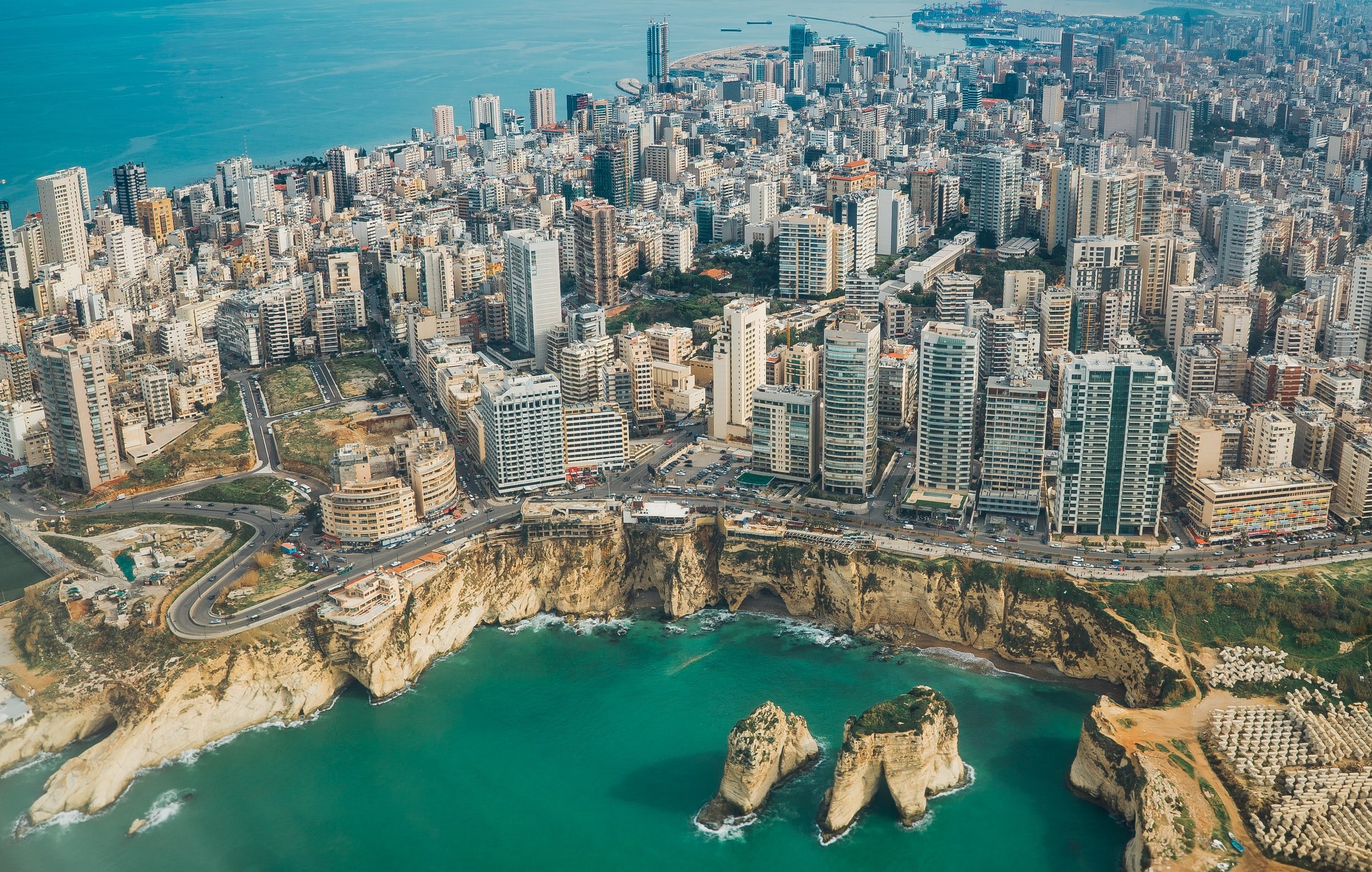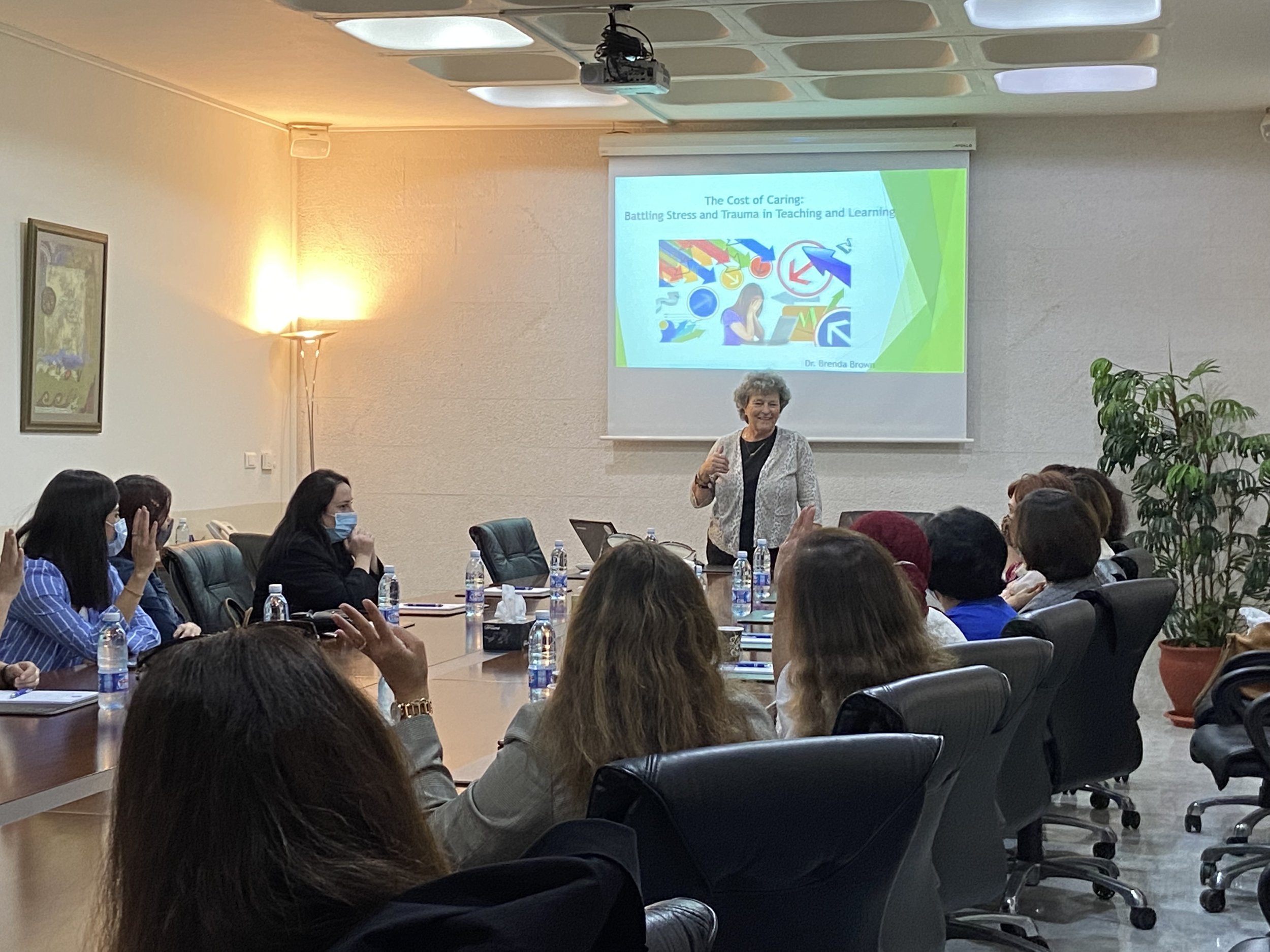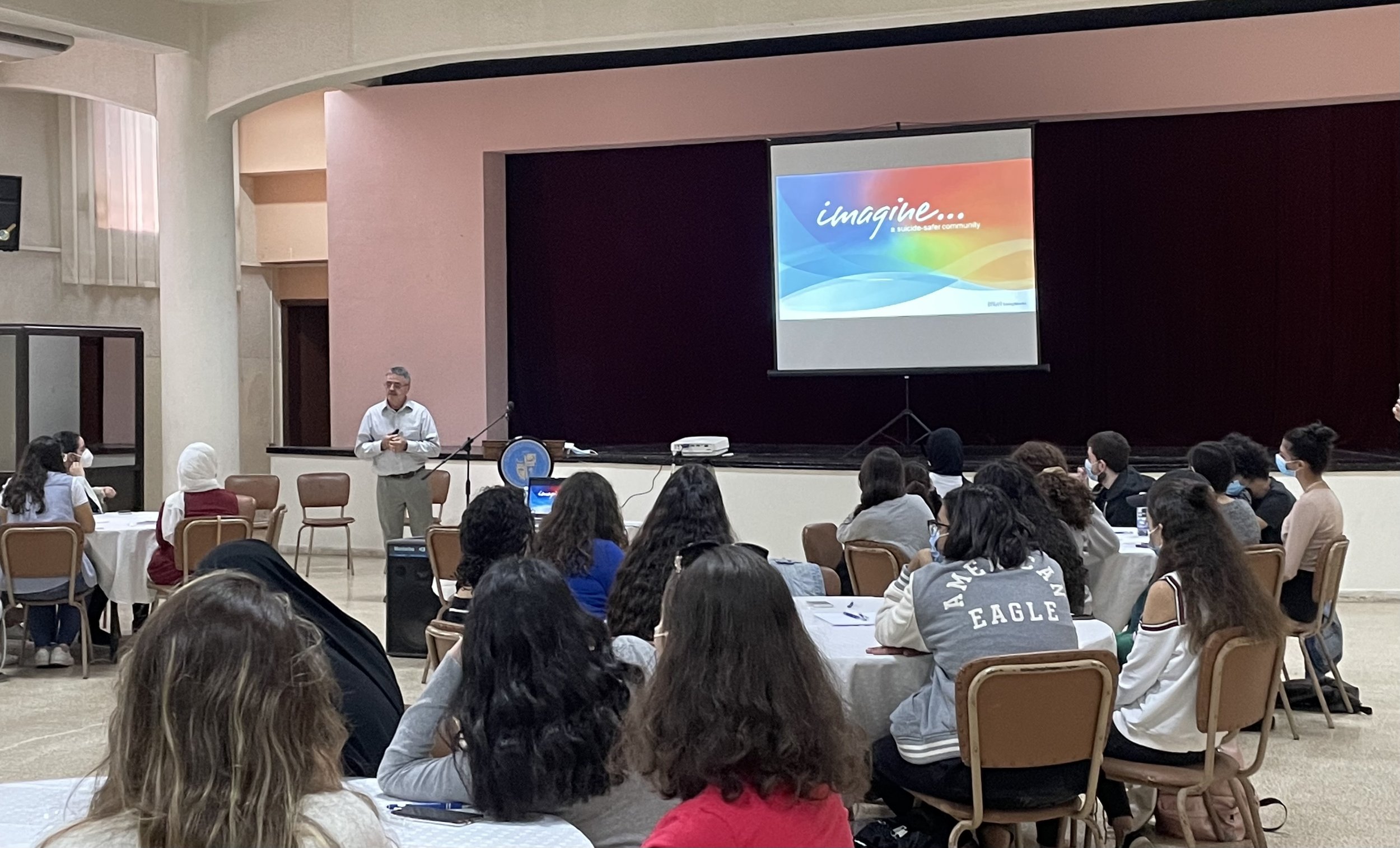Beirut, Lebanon 2022 -
Preventing Disaster
“Yes, I have thought about suicide.”
“I am worried about my friend. She seems to have given up on life.”
“Yes, I have thought about suicide.”
“I am worried about my friend. She seems to have given up on life.”
Sadly, these words were shared at a Suicide Prevention workshop we were privileged to give at Beirut’s Haigazian University in November. These kinds of words are heard not just in Lebanon but all over the world. Suicide rates have escalated over the past two years. The pandemic, isolation, social media bullying, abuse…all have contributed to these feelings of despair to the point where more and more people are considering taking their life. My husband and I kept hearing this call for help…and this desperation in people’s lives led us to pursue becoming registered trainers in suicide prevention and trauma care so we could share Suicide Prevention and Trauma Care presentations wherever a door opens locally and worldwide. This topic causes people who have experienced this despair or who have been touched by the ripple effects of suicide to be very vulnerable as they listen and share. This often leads to opportunities to talk about truth and hope during individual conversations at breaks or after the workshops.
I have enjoyed traveling to Beirut 16 times over the past 11 years sharing with Lebanese Society for Education and Social Ministries (LSESD) in education, refugee work, children’s camps, and with medical teams. On this trip, my husband, Dale, came as well as Dr. Carolyn Bishop, President of Consortium for Global Education, and Dr. Jeff Moore from Anderson University. One of the main purposes of this trip was to provide workshops that dealt with the stress of life for university students, teachers, professors, counselors and social workers for Haigazian University and Beirut Baptist School. Dale and I taught about how to recognize the signs of suicide and not miss, dismiss or avoid them as well as what to do when you are concerned that someone has reached that level of despair. As an educator, I was especially concerned about the teachers and professors because I knew how difficult these past two years have been in Lebanon. We discussed “The Cost of Caring” and how their own caring hearts for their students have been wounded as they carried such a burden for their wounded students. Knowledge was given, hope was shared, and they were applauded for all they have done and continue to do. Dr. Moore and I were able to share thoughts about trauma healing from the aspect of how the brain handles trauma as well as how our heart reacts to trauma.
The Lebanese are amazing, beautiful people! They are weary yet they continue to live life through extremely difficult circumstances. Their resilience is strong but they need our prayers, our support and encouragement. It was a blessing to go and share life with them for a little while. Carolyn introduced me to Lebanon in 2011 and she and I have traveled there many times together seeking ways to serve alongside of our friends at LSESD. This was Dale and Jeff’s first trip but without a doubt, I am sure it will not be their last. Our four hearts came back to the States full of thankfulness for our friends there, for the work they continue to do for their people and the refugees in their land and eager to find more ways to support them.
As doors continue to open under the umbrella of our partner organizations, Center for Global Strategies and Consortium for Global Education, Dale and I are thankful for opportunities to go locally and overseas to share this important information about suicide prevention and trauma care in hopes we can make a difference in people’s lives and give them hope.
Brenda Brown, Ph.D



